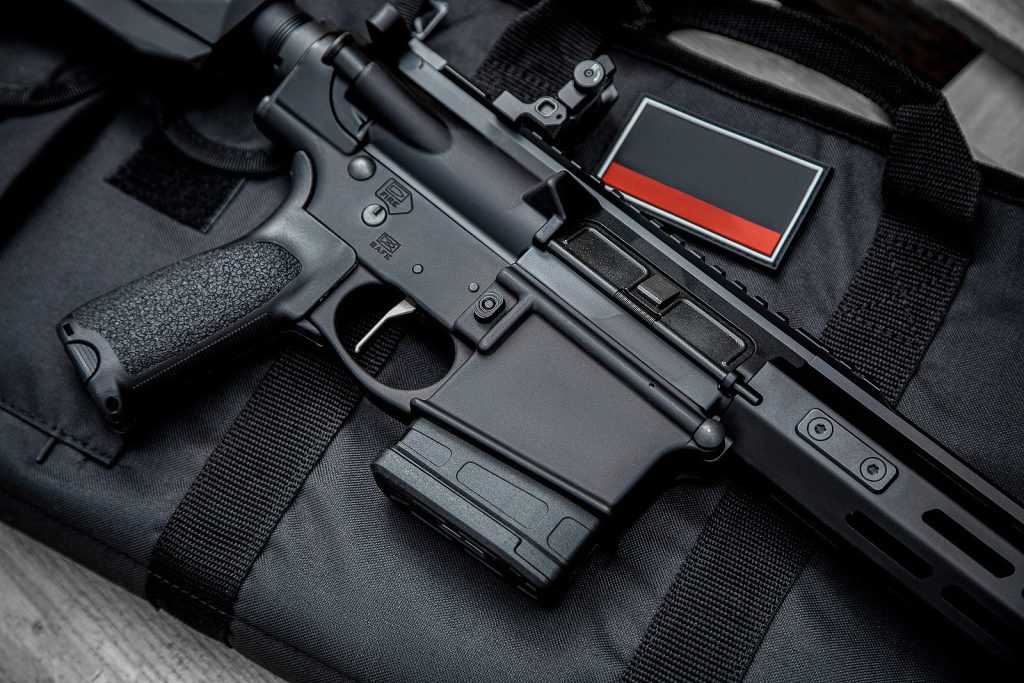
Firearms regulations in Canada are complex, detailed, and evolving. In this article, we will focus on unauthorized possession of a firearm and what to do if it is your first-time offence on a gun charge.
What Is Considered a Firearm in Canada?
Section 2 of the Criminal Code of Canada (the “Code”) defines the word firearm as “a barreled weapon from which any shot, bullet or other projectile can be discharged and that is capable of causing serious bodily injury or death to a person.”
This legal definition is purposely broad so that someone using a benign item to cause injury can still be charged. A flare gun, for example, can cause injury if discharged at close range. If the police determine that the person intended to injure someone with it, they can charge them with firearms-related offences.
Given the broadness of the definition, having good legal representation is critical to protecting yourself. If this is your first-time offense on a gun charge, it is particularly important to hire a good lawyer as the interpretation and application of the law can be confusing.
What Is the Criminal Code for Firearms Offences in Canada?
Firearms-related offences are governed by both the Code and the Firearms Act.
The Firearms Act sets out the rules for licensing, classification (non-restricted, restricted, or prohibited), registration, storage, and transportation of firearms. The Code, on the other hand, deals with enforcement and penalties for committing firearms-related offences.
Firearms-related offences are covered in several sections of the Code, including:
- Section 91: Unauthorized possession of a firearm.
- Section 95: Possession of a prohibited or restricted firearm with ammunition.
- Section 99: Weapons trafficking.
- Section 100: Possession for the purpose of trafficking.
- Section 102: Making false statements to obtain a firearm license.
- Section 117.03: Careless use, handling, or storage of firearms.
Firearms-related offences may also be considered aggravating factors in other crimes. For example, if you commit a robbery there is no mandatory minimum sentence, but if you use a firearm there is a minimum sentence of four years.
What is Unauthorized Possession of a Firearm?
Unauthorized possession of a firearm means having a firearm without a valid license. It is the most common of the firearms-related offences in Canada.
What is Possession?
Where firearms-related offences are concerned, possession is more than having the firearm in your hands. For a successful conviction the prosecution must also show that you knew about the weapon, that you had control over it, and that you consented to it being present. We will discuss each of these below.
Knowledge
To show that you were guilty of possession, the prosecution must establish that you knew about the existence of the firearm. For example, if you are found with a firearm in a bag that you are carrying, along with a purchase receipt for the firearm, and your prints are on the firearm, it would be difficult to claim that you did not know about it. However, if you inherited a property and a firearm was later found in the attic, your lawyer could reasonably argue that you did not know it was there.
Control
Control refers to the accused person’s ability to access the firearm or to use it.
If the firearm was found in a safe and you were the only one who had the combination to the safe, it is clear that you had control over it. The same would be true if the firearm was found in the glove compartment of your car and you were the only one who drove that car.
On the other hand, if the firearm was found in the kitchen of an apartment you shared with several other people, the issue of control could be challenged by your lawyer. The same is true if the firearm was found in a locked glove compartment of a car you borrowed from someone else.
Consent
In the context of firearms-related offences, consent means that the accused agrees to allow the firearm to be present, in their control, or in their possession, even if they do not own it and have not used it.
For example, if you knowingly let a friend store a firearm in your home you are consenting to possession and could be charged with firearms-related offences. Similarly, if two roommates agree to store a legally owned firearm in their apartment and they both have access to the location, then both have consented to possession and the one who does not have a license can be charged with unauthorized possession.
If, on the other hand, you tell your friend not to store their firearm on your property but the friend does it anyway without telling you, your lawyer would argue that you did not consent to possession. The same applies if someone coerced you into letting them store a firearm in your home or threatened you if you did not consent; this would not be considered consent.
What Are the Penalties for a First-Time Offence on a Gun Charge?
Unauthorized possession of a firearm is a hybrid offence, meaning that it can be prosecuted either as a summary conviction or an indictable offence. Typically, summary convictions apply to less serious offences such as unauthorized possession of a non-restricted firearm with no aggravating factors. Indictable offences more often involve a prohibited firearm or a previous offence.
On summary conviction, you could face up to 6 months in prison and a fine. As an indictable offence, unauthorized possession carries a 5-year minimum sentence.
What to Do for a First-Time Offence on a Gun Charge
If you have read this article, you understand that firearms-related offences are not straightforward.
The first step if you are charged with any crime is to hire a lawyer. An experienced criminal lawyer will protect your rights, help you navigate the court system, and develop the best defence possible for you.
Note that first-time offenders are treated with more sympathy than repeat offenders. Avoiding that first conviction can keep you from being a repeat offender. Hiring a good lawyer is critical to that outcome.
About Zamani Law
The team at Zamani Law, led by well-known Brampton criminal lawyer Farid Zamani, understands the nuances of firearms-related offences in Canada. Their skill, experience, and resources will ensure the best outcome for you and protect you from unfair prosecution.
Contact Zamani Law today for a free consultation.
References
Firearms Act: https://laws-lois.justice.gc.ca/eng/acts/f-11.6/





